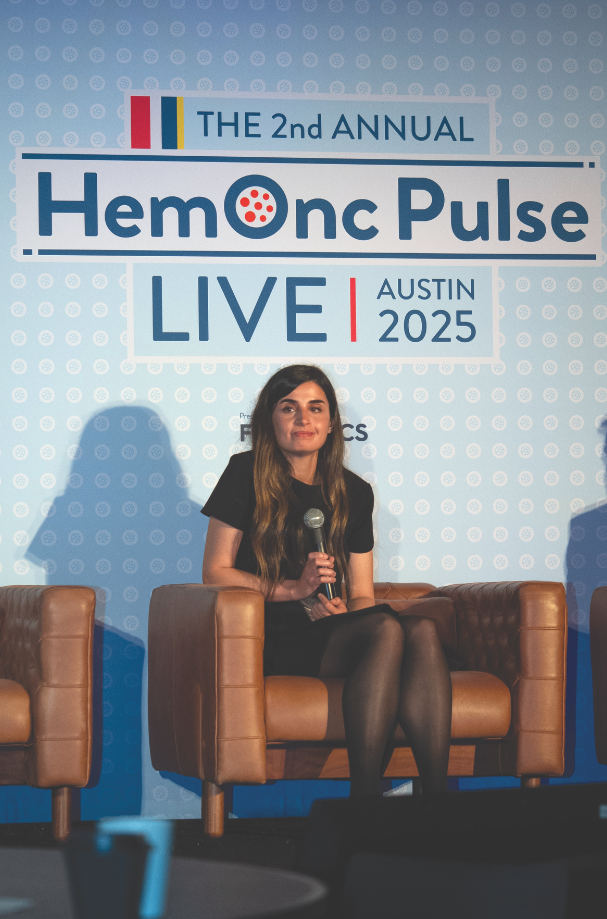
Durcabtagene autoleucel has shown high response rates and manageable safety in patients with relapsed or refractory MM in a recent interim analysis.
The phase II trial was led by Andrew Spencer, MBBS, of Alfred Health, and presented at the 21st International Myeloma Society Annual Meeting in Rio de Janeiro, Brazil.
A novel BCMA-directed chimeric antigen receptor (CAR) T-cell therapy, durcabtagene autoleucel is manufactured using the T-Charge™ platform that reduces manufacturing time to less than two days while preserving T-cell stemness.
Evaluating two target doses for the therapy, “[e]fficacy thus far has appeared comparable between doses, with a trend toward better safety at the 5e6 dose,” the investigators wrote.
The open-label, single-arm, multicenter trial enrolled 161 adults who had received at least three prior lines of therapy. The 145 participants who received durcabtagene autoleucel infusion had a median age at enrollment of 61 years and were 63% male. A total of 111 infused patients received a target dose of 10e6 cells and 34 received a target dose of 5e6 cells.
The trial’s efficacy analysis set was 62 patients with a median follow-up of 8.3 months. The set achieved an overall response rate (ORR) of 92%, which met the primary endpoint of the trial (P<.001). It also attained a complete response rate (CRR) of 53% and a six-month progression-free survival (PFS) probability of 82%.
The trial’s full analysis set included all infused patients. The 107 patients who had follow-up of at least six months achieved an ORR of 97%, a CRR of 53%, and a six-month PFS probability of 86%.
Safety was evaluated in all patients who received infusion, and all patients experienced at least one adverse event (AE). AEs of grade 3 or worse severity which affected at least 20% of patients were anemia, neutropenia, and thrombocytopenia.
Cytokine release syndrome (CRS) of any grade was experienced by 96% of patients; grade 3 or worse severity occurred in 6% of them. CRS had a median time to onset of eight days and median duration of four days. Immune effector cell-associated neurotoxicity syndrome (ICANS) affected 13% of patients and was grade 3 or worse severity in 4% of them. Ten percent of patients reported experiencing macrophage activation syndrome, hemophagocytic lymphohistiocytosis (HLH), or immune effector cell-associated HLH-like syndrome.
Of the 14 mortalities in the trial, four occurred within 30 days of infusion. Ten mortalities were due to AEs, nine of which were of patients who received the 10e6 cells target dose and five of which were due to infection. Four mortalities were due to MM progression, three of which were of patients who received the 10e6 cells target dose.
Reference
Spencer A, Raab MS, Iida S, et al. Interim phase 2 study results of durcabtagene autoleucel (PHE885), a T-Charge™ manufactured BCMA-directed CAR-T cell therapy in patients (pts) with r/r multiple myeloma (RRMM). Abstract OA-12. Presented at the 21st International Myeloma Society Annual Meeting. September 25-28, 2024; Rio de Janeiro, Brazil.






 © 2025 Mashup Media, LLC, a Formedics Property. All Rights Reserved.
© 2025 Mashup Media, LLC, a Formedics Property. All Rights Reserved.